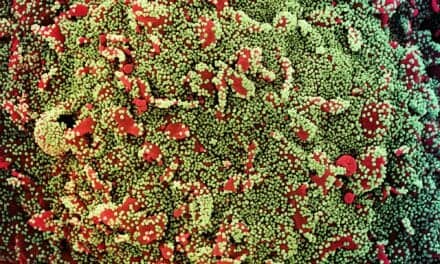Scientists at Boston University have uncovered that the novel coronavirus suppresses lung cells’ ability to call in the help of the immune system and activates an inflammatory pathway.
“The infected lung cells pour out inflammatory proteins. In the body of an infected person, those proteins drive up levels of inflammation in the lungs,” said Dr. Darrell Kotton, director of the Boston Medical Center/Boston University Center for Regenerative Medicine and corresponding author of the research.
Kotton said studying cells found deep in the lungs is often difficult to do because they are hard to access, but he and his team have been developing models of human lung tissue grown from stem cells for years.
Kotton and his team found SARS-CoV-2 blocks cells from activating one of the antiviral branches of the immune system early on after infection has set in.
Those cells would normally send out a protein in response to threat of disease, but they are delayed for several days, giving the virus plenty of time to spread.
Other coronaviruses, such as SARS, also use this technique to evade the immune system, Kotton said.










